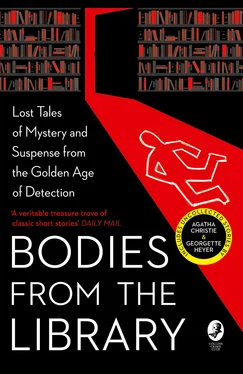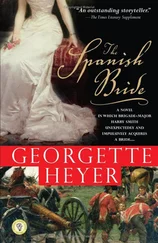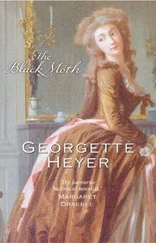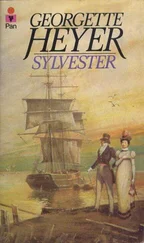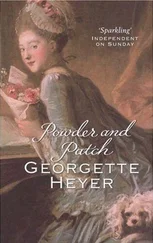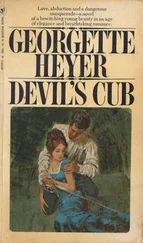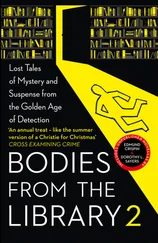Half an hour later it came, just as he had intended it should. Mrs Marbeck rang up to ask if her husband had left.
‘Yes, Mrs Marbeck,’ Weller hastened to reply. ‘He left at his usual time, nearly an hour ago.’
‘Well, he hasn’t arrived here and I’m rather anxious.’
‘I’ll come across at once,’ Weller declared and rang off.
This call was really part of his scheme. The wet oars, the drippings in his boat, the damp sleeves of his waterproof: all such awkward items would be explained by the speed with which he had hastened across.
Everything continued to go exactly to plan. He made his report to Mrs Marbeck, they rang up several houses at which the old man might have called. Then at Weller’s suggestion they telephoned the police.
Inspector French was at the house within minutes. He listened to statements and said he would start an immediate inquiry. Then came a period of waiting.
Mrs Marbeck urged Weller to go home, but his sickening anxiety prevented him. Fortunately his presence was not suspicious since politeness also required him to stay. At length, two hours later, the inspector returned. To Mrs Marbeck he broke his news with genuine kindness. Her husband’s body had been found lower down the river. He had evidently fallen overboard while making the crossing. Then he turned to Weller.
‘I’d like, sir, to go over to your house to get some further details about Mr Marbeck’s start. If you’ll take me over in your boat, I’ll send the car round.’
‘Right,’ Weller answered. He put on his waterproof and said he was ready.
But the inspector was looking at him very strangely. Weller’s heart missed a beat. All had been going perfectly; what could now be wrong? ‘I said I was ready,’ he repeated shortly.
Inspector French bent forward. ‘Excuse me, sir. I see you’ve lost a button from your coat.’
Weller glanced down. This was what he had felt. No doubt it had jammed under the oar. ‘My own fault, inspector,’ he said with truth. ‘It was loose and I omitted to have it resewn.’
French took something from his pocket. ‘It’s not lost, sir. I think this is it. Yes: colour, shape, size and even thread are the same. And do you know where I found it? Gripped in Mr Marbeck’s fingers: I could hardly get it out.’
Born in Dublin in 1879, Freeman Wills Crofts would go on to become one of Britain’s best loved writers of detective fiction. After leaving school, Crofts joined the Belfast and North Counties Railway, rising to Chief Assistant Engineer. In 1912 he married and, in his early 30s, wrote a novel during a long period of convalescence. In homage to Charles Dickens, this first attempt was entitled A Mystery of Two Cities but by the time it was published in June 1920, by Collins, it had been retitled The Cask after a rewrite that saw the final section of the novel, largely comprising a trial, excised altogether.
Fired by this success, Crofts wrote a second novel, The Ponson Case . And then a third … For his fifth novel, Inspector French’s Greatest Case , he created Joseph French, the Scotland Yard detective who would go on to appear in a total of thirty novels, countless radio plays and three stage plays. As Crofts described him, ‘ Soapy Joe [is] an ordinary man, carrying out his work, in an ordinary way … He makes mistakes but goes ahead in spite of them. ’
More books followed and Crofts was soon recognised as one of the best practitioners in the genre. The railway engineer and part-time organist and choirmaster retired in 1929 to take up writing full time, and in 1930 Crofts was invited by Anthony Berkeley to become a founding member of the Detection Club, based in London. Partly because of this, Crofts and his wife Mary moved to Blackheath, a pretty village in Surrey where their first home was a house, Wildern , which has since been re-named after its most famous owner. Over the next twenty years Crofts would produce many books including The Hog’s Back Mystery (1933), Crime at Guildford (1935) and The Affair at Little Wokeham (1943), all of which are set in Surrey.
An active member of the Detection Club, Crofts also contributed to several of their collaborative ventures, including the 1931 novel The Floating Admiral , which he wrote together with Agatha Christie and other members of the Detection Club. During the Second World War, Crofts produced dozens of radio plays for the BBC, many of which he later turned into short stories for the Inspector French collection Murderers Make Mistakes (1947). Throughout the war and in the years immediately afterwards, Crofts continued to write but his output gradually declined and he died in 1957 after a stubborn battle with cancer.
Croft’s obituarist in The Times praised the writer for his ‘logically contrived’ plots and his close attention to detail, especially in the construction and breaking down of superficially cast-iron alibis. Crofts’ novels often feature railway travel and the alibis of his criminals often turn on the complexities of pre-internet timetabling. His shorter fiction is similarly precise with the majority turning on what he would style ‘the usual tiny oversight’ or an inconsistency in a suspect’s statement so that they offer the reader an opportunity to outwit the criminal before French.
Sixty years after his death, the work of Freeman Wills Crofts is having something of a resurgence. Several of his novels are once again in print and a celebratory collection is in preparation bringing together previously uncollected short stories and some of his unpublished stage and radio plays.
‘Dark Waters’ was first published in the London Evening Standard on 21 September 1953.
LINCKES’ GREAT CASE
Georgette Heyer
I
The chief paused and glanced sharply across the table to where Roger Linckes sat facing him, listening to his discourse.
‘It is a big job,’ Masters said abruptly. ‘So much is at stake. It’s not like some stage robbery, where Lady So-and-So’s pearls are stolen. It’s—well, the whole country—perhaps all Europe—is implicated. Maybe I’m wrong to set you on to it. You’re very young; you’ve had very little experience.’
The younger man flushed slightly under his tan.
‘I know, sir.’
Masters looked him over thoughtfully, from his grave young eyes to his brogued shoes. He smiled a little.
‘Anyhow, right or wrong, I’m going to let you see what you can do. I must admit I haven’t much hope. Where Tiffrus and Pollern have failed, a comparative tyro isn’t likely to succeed. But you did exceedingly well over that Panton affair, and it’s just possible you might hit on a solution to this mystery.’ He drummed on the table, frowning. ‘I’ve known it happen before. I suppose the big detectives get stale, or something approaching it. Let’s hope you’ll bring fresh ideas into the business. How much do you know about it?’
Linckes crossed his legs, clasping his hands about one knee.
‘Precious little, sir. You’ve seen to that, haven’t you? Nothing known to the papers, I mean. All I know is that there’s a leak in the Cabinet. Knowledge of our doings is being sold to Russia and to Germany. You say it has been going on for some time. The Soviets got wind of our new submarines. Hardly anyone in England knew about ’em, and yet Russia discovered the secret! Someone must have duplicated the plans and sold them—probably he’s done it many times before—and that someone must be one of those in the small circle of people who knew all the details of the new subs. In fact, he must have been a pretty big man. It only remains for us to find out which one.’
Читать дальше
